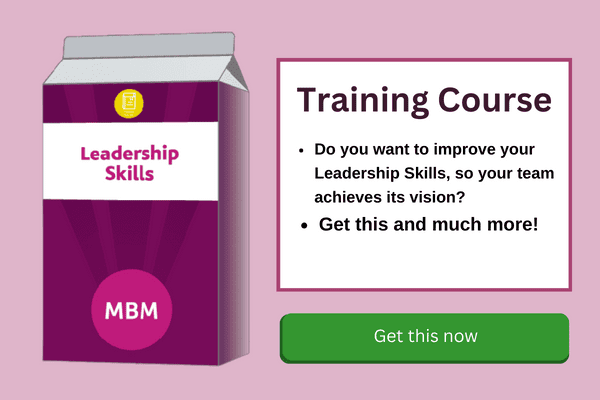Creating Awareness about Developing Our Leaders With Coaching
In today’s workplace, regardless of your industry, team development and growth opportunities need to exist. This is especially true for your leadership team who drive the departments to produce the results. However, how can they perform properly without the necessary skills and knowledge? That’s where leadership development coaching can make all the difference that you and your team need.
Here, we will take you through some of the key aspects of leadership development coaching: knowing what it is, why it’s important, how to create an effective programme, and what happens after the coaching. For us to get the right results from leadership development coaching, we need to embrace these focus areas. That way, we can have a more effective formula to get better results.
What is Leadership Development Coaching?

So, what do we mean by leadership development coaching? The term can sound quite long-winded and expensive! It doesn’t have to be. Instead, let’s think of it as:
Leadership: those in the team responsible for the work performance of others.
Development: growth and improvement in terms of knowledge, skills and experience.
Coaching: a structured approach, led by a coach, to achieve goals and improve performance, skills and behaviour.
You see, it’s not that complicated after all. What we are talking about here are coaching programmes or sessions where professional development is the main objective to achieve greater goals. These sessions can be 1-1 or for groups. Also, they can be run by internal or external coaches.
A few important things to note about leadership development coaching:
- It’s not just about retention.
- Any/every level of leadership can have a development programme.
- The programme needs proper structure and support to succeed.
- Participants (coachees) need to be willing to take part, not forced to do so.
- Clear objectives and expectations need to be set before starting.

Importance of Programmes for Developing Leaders
There are many reasons why these types of programmes are important. They bring a variety of benefits to the individuals as well as the company. Let’s have a look at some of the more common ones.
1- Enhance Strengths, Address Improvements
First, we see leadership development coaching addressing key areas such as strengths and areas of improvement of the participants. It’s very often one of the earliest activities they are asked to complete. I know that’s what I ask my participants during the first hour of the first session!
Coaching, as a whole, ensures that areas of strengths and improvements are front and centre in terms of content and goals. They create the main objectives for most coaching programmes. In the end, they become the backbone of the entire experience. We create goals and objectives for taking part in the programme to enhance our strengths and work on our areas of improvement. And, hopefully, we learn some new things along the way too.
2- Improve Communication and Collaboration
Through leadership development coaching, we see the participants improve both their communication and teamwork skills. Throughout any coaching programme, these two key skills will be important elements featured in the topics. For example, if you have time management included in your programme, both communication and collaboration will feature in this important skill area.
These two skills for leaders are greatly improved throughout the programme. Actually, this is regardless of whether the course is 1-1 or group sessions. The reason we see these skills improving is because of the format and structure that coaching takes. There is a big emphasis on 2-way, open communication during every discussion. Open questions require everyone participating to give more than one-word answers. Also, this open format encourages everyone to share as well as listen. And, we see better collaboration as the coaching highlights the importance of teamwork and the contribution everyone makes, no matter how big or small.
3- Increase Morale and Confidence
Next, both leaders and their teams see a boost in morale and confidence during and after coaching programmes. There are several reasons for this, such as:
- Better decision-making and problem-solving.
- Improved listening skills and inclusion of ideas from the team.
- Increased confidence from using the new knowledge and skills gained during the programme.
- Enhanced positivity in the team as a result of the new or enhanced skills.
- Greater confidence in the leader of their team.
Because of all of these points, and more, both the leader and the team are benefitting from the programme. This can be directly, as the participant, or indirectly, as the team member seeing the changes and improvements. All in all, it’s a win-win situation, as you can see.
4- Create Goals and Strategies
One key focus area during any coaching programme is goals and objectives. Before these courses, some leaders struggle to set goals that work. Any effective coaching course will cover this topic in detail, showing how to create effective goals.
As a result, participants can use these skills after the course is finished. For example, let’s say the leader has to set the goals for the team for the upcoming quarter. Using the skills they worked on during the course, they will be better prepared to make goals and strategies that can work and produce results. These skills can then be used as an ongoing practice for everything from personal goals to long-term strategies, to team projects.
As you can see, there are many reasons why leadership development coaching is important and can benefit the company, participant and the team. We have mentioned only a handful here. Have a look for reasons if you still need convincing. Hopefully, this article will be enough to convince you! Let’s continue and have a look at how we can develop a coaching programme that works.
How to Create an Effective Leadership Development Coaching Programme
Here, we want to share 6 important steps to follow to ensure you get the best possible coaching programme. At the end of the day, you and your team are making an investment of time, effort, and probably money to make this happen. So, we want to help you get the best return on your investment.
#1: Understand Your Coaching Needs

First, start with understanding what coaching is needed and for whom. This is an important first step for any leadership development coaching programme. There are ways of identifying the what and the who to get your coaching programme happening.
1. Use Customer Feedback
Your customers are a GREAT source of information, especially in terms of customer service and experience. First, analyse feedback from your customers, either online reviews or customer surveys, to understand what is going well and where improvements are needed. Also, monitor trends and repetition in terms of areas of concern that can be included in the programme.
2. Conduct Audits and Checks
First-hand feedback is very valuable. Therefore, it is important to conduct internal checks and audits of different areas of your operations. You need to link these checks to set standards, processes, procedures and practices in your company. Avoid adding anything to the list that has not been shared as an agreed expectation. Use existing templates to conduct the audits and checks. That way, you know that those being reviewed had previous awareness of expected behaviours and actions.
One example I can share is observing new leaders conducting performance reviews. The company has a template and training is conducted regularly. Therefore, there are clear guidelines that can be used to review the performance of the leader.
3. Get Employee Input
Feedback from the team is just as valuable as feedback from customers, even more so in many cases. Therefore, create ways of obtaining their valuable feedback that will give effective and useable information. You can:
- Use anonymous surveys.
- Conduct 1-1 confidential interviews.
- Encourage open team meetings as platforms to share.
- Provide safety in terms of policies that allow for internal complaints and grievances.
- Oversee 360 reviews that allow line staff to leadership feedback.
Now, we have an idea about what and who to include in our coaching programme. Next, we search for the right coach.
#2: Find the Right Coach

Step 2, find the right coach for your needs. A few considerations to keep in mind:
- Financial investment
- Internal or External coach
- On-site or off-site
- In-person or online
Finding the right coach is a big part of the potential success of your programme. Many leadership development coaching courses fail because of this misstep. There are a few reasons why coach selection can have a negative impact. Usually, when programmes fail to provide the expected results, it’s because the coach:
- Failed to tailor-make the content for the client’s needs.
- Avoided building the necessary relationships with the coachees.
- Lacked experience.
- Did not coach by example.
- Struggled to link the programme to the company goals, objectives and vision.
- Fell short in their ability to have coachees take the lead during sessions.
If any of these occur, your coach is the wrong choice. Do your research before jumping into a commitment with a coach. When using an internal coach, invest in coaching training, as required. Also, keep your audience in mind when selecting a coach that will have a positive impact and generate results.
#3: Have a Clear and Exciting Programme

We know our needs and have our coach. Now, we need a clear and exciting programme. This is another important element of leadership development coaching. You want a programme that will interest your participants and encourage their active participation. Here are some points to consider:
1. Create a Flexible Roadmap
From experience, I can say that having flexibility during coaching programmes is an important step. You want structure, however, you also want attendance and participation. Therefore, be ready to adjust the programme as required. The changes should have a good reason behind them. Show that skill of flexibility in action without letting others take advantage of your understanding nature.
2. Communicate the Programme in Advance
Participants need to know what to expect. Use pre-coaching communication to get the ball rolling. For this, use questionnaires, surveys, short meetings or an overview of the programme. All of these can help open up the communication channels effectively, even before the programme gets started.
3. Agree Expectations and Outcomes
Now, you need to create buy-in and understanding with the participants. Coaching is happening for a reason. However, does the participant know why? Also, do they know what you expect as a result of them completing the programme?
These are important conversations to have. That way, everyone is on the same page; you, the coach and the participants. Often, people resist coaching when they don’t understand the purpose or expectations. Don’t fall into that trap due to lack of communication. Open up and share before and during the process.
4. Include an Interesting Mix of Topics
Then, be sure to have an interesting mix of topics that everyone can enjoy. Also, ensure the coach has different tools and techniques to keep the sessions interactive and participative. This can be through group activities and discussions, case studies, practical applications, etc. Use a mix of different visual aids and media for classroom sessions.
#4: Consider Time Frames
Now, we need to decide how long the programme will run. Time is a big investment for everyone. Therefore, we need to show that their investment is worth the effort. Set realistic time frames. They need to include time for practical application, assessments or assignments, space between sessions, etc. Also, when setting time for coaching, look at the time of day. I know from experience that managers try to send people for sessions AFTER their work is finished. Avoid this where possible. Instead, work it into the normal working hours. Otherwise, you will find that participants resent the whole experience.
Related reading: Spaced repetition
#5: Support and Encourage
From the start, as the driver of this programme, you need to offer support and encouragement throughout the whole process. You are responsible for that. Many leaders trip up here by failing to keep the support going once the programme has started. Avoid that trap. Instead, be the voice of encouragement, even when the programme might challenge some of the participants, even if one or more want to quit. You need to be there, from start to finish.
#6: Evaluate Results
Finally, once you have started running your leadership development coaching programme, start your analysis of progress. You need to begin this evaluation early on. That way, if there is feedback to the coach or participants for changes or improvements, it happens before the course is over. Otherwise, it would be too late to impact the results. You need to review progress regularly. Also, before moving on to another person or group for coaching, take time to review what went well and what can be changed for future sessions and programmes. Evaluation of results is an important step. It shows the return on investment that everyone made before and during the course.
Coaching Conclusion

Here, I can say with confidence that leadership development coaching is worth the time, effort, and money invested into making it happen. I have seen first-hand the positive impact these programmes can have. They benefit the individuals who take part. Also, the team benefits from the changes and enhancements they experience from their leader. Then, the company benefits from the improvements that come as a result of the coaching. Everyone wins.
Start looking at the different coaching options available for you and your leaders. Check out our catalogue of training courses. Consider all your options before jumping in, as we explained in the previous section of the article. Then, go ahead and make it happen. For more coaching guidelines and information about tools and techniques, check out more of our coaching articles here at MBM.
If you’ve been enjoying our content, check us out on YouTube as well.




